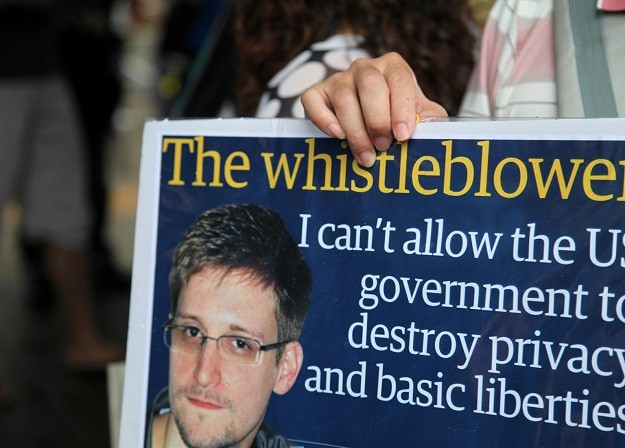
Last summer a geeky individual called Edward Snowden made what is arguably the most significant leak of secrets in modern history. His revelations about the sheer scale of US surveillance of phone and internet use shook the world and turned him into a fugitive. Reactions to him tend to be polarised: he’s either a traitor, or a hero. He was never seen as a likely candidate to become a whistleblower.
Edward Joseph Snowden was born in 1983 and brought up in North Carolina. Details of his early days are sketchy, to say the least. His mother works as a clerk at a federal courthouse while his father is a former coastguard officer. The two are now divorced. The young Snowden failed to graduate from high school because of illness, but went on to study computing at a community college in Maryland. He spent four months in Special Forces training, but did not finish because he broke both legs in an accident.
Following a second stint at community college, he got his first defence job with the National Security Agency (NSA). Reportedly, he started as a humble security guard. His computer skills eventually won him an IT role at the Central Intelligence Agency (CIA). So far, so dull. Snowden recently described himself as “just another guy, no different to anyone else”. His father has called him “a sensitive, caring young man… a deep thinker”. His growing character is revealed by hundreds of messages he posted on a nerdy internet forum over the course of a decade, under the user name TheTrueHOOHAA.
It’s not the picture you might expect. He loved guns and apparently owned a Walther P22. He was a Republican, a fan of the libertarian politician Ron Paul and a fervent believer in national security. He was also an avid gamer and looked for ways to surf the internet anonymously.
By 2007, the CIA had moved him to Geneva, which he saw as “nightmarishly expensive and horrifically classist”. His internet posts show him as abrasive and cocky, an individualist who thoroughly embraced Anglo-Saxon capitalism. In October 2008, after Lehman Brothers’ bankruptcy sparked a market meltdown, he defended the controversial practice of short-selling (betting shares would fall in value), which he hoped would make him “filthy rich”. Later he admitted he “lost $20,000 in October alone” through his share dealings. It seems he also hated the Federal Reserve’s policy of money creation and wanted a return to the gold standard, along with welfare cuts. “Save money?” he wrote, “Cut (f***ing) social security.”
In recent tellings of his story, Snowden claims he already had misgivings about the ‘surveillance state’ while in Geneva and considered leaking secrets. But in 2009, having left the CIA to work for a private contractor, Dell, his online life showed him railing against whistleblowers and WikiLeaks, proclaiming that leakers “should be shot in the balls”. How did that mindset change? Snowden’s version of events is that he had hoped for more oversight of burgeoning surveillance systems when Barack Obama entered the White House, but was severely disappointed when the status quo rumbled on. He had come to believe that the government was acting beyond its remit under the US Constitution through the spread of mass spying programmes.
By 2013 he had moved to another contractor, Booz Allen Hamilton, which maintained the NSA’s computer systems. In May, Edward Snowden was living a comfortable life with his girlfriend in Hawaii on a $200,000 salary. Appearances can be deceptive; he had already managed to accumulate a huge cache of data on various surveillance systems, without anyone noticing.
Snowden told his boss he needed time off for health reasons and flew to Hong Kong carrying the hoard of data. He released some of it to the Guardian and the Washington Post, which began to publish the secrets. Among the most startling revelations, it emerged that the NSA had gained access to vast swathes of America’s phone calls, tapped into the servers of nine internet giants to harvest information and eavesdropped on 35 world leaders including German Chancellor Angela Merkel’s mobile. The UK’s top-secret Government Communications Headquarters (GCHQ) had also been extracting data from the fibre optic cables which carry communications traffic around the world.
In the teeth of the media storm, Edward Snowden fled to Moscow where, after weeks of living in airport transit, he was granted temporary asylum until August 2014. It now looks as though that time-limit may be extended. It is paradoxical perhaps that the libertarian Republican has sought sanctuary in Vladimir Putin’s Russia. But despite reports of death threats and shadowy allegations that he may have been a Russian spy all along, Snowden seems unfazed. “In terms of personal satisfaction,” he told the Washington Post, “the mission is already accomplished. I already won.”





